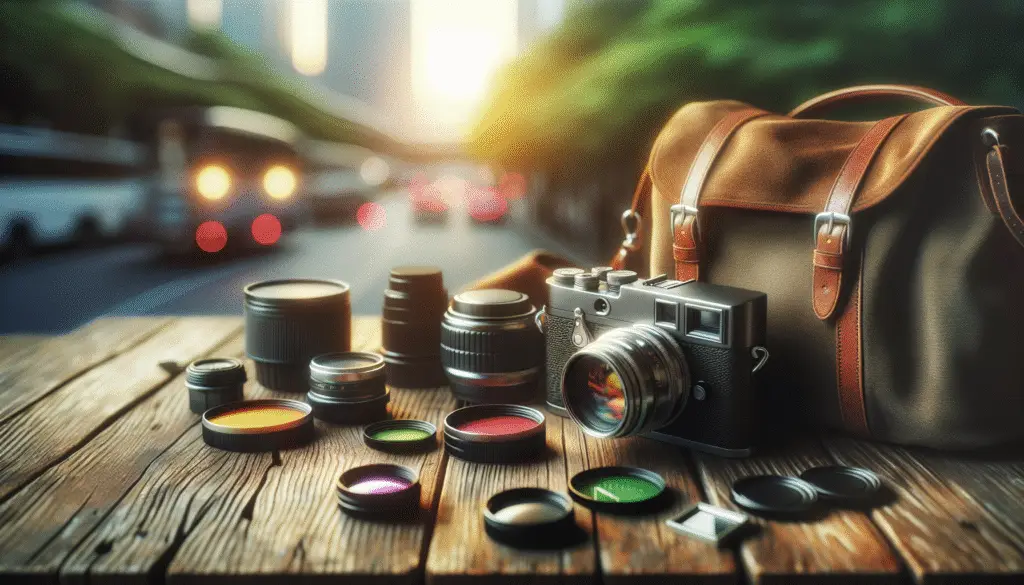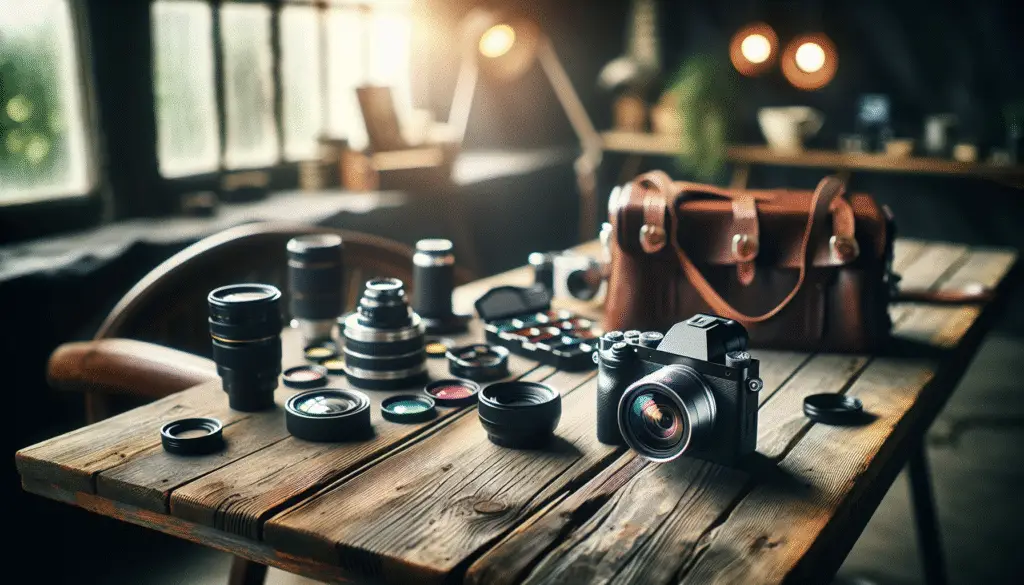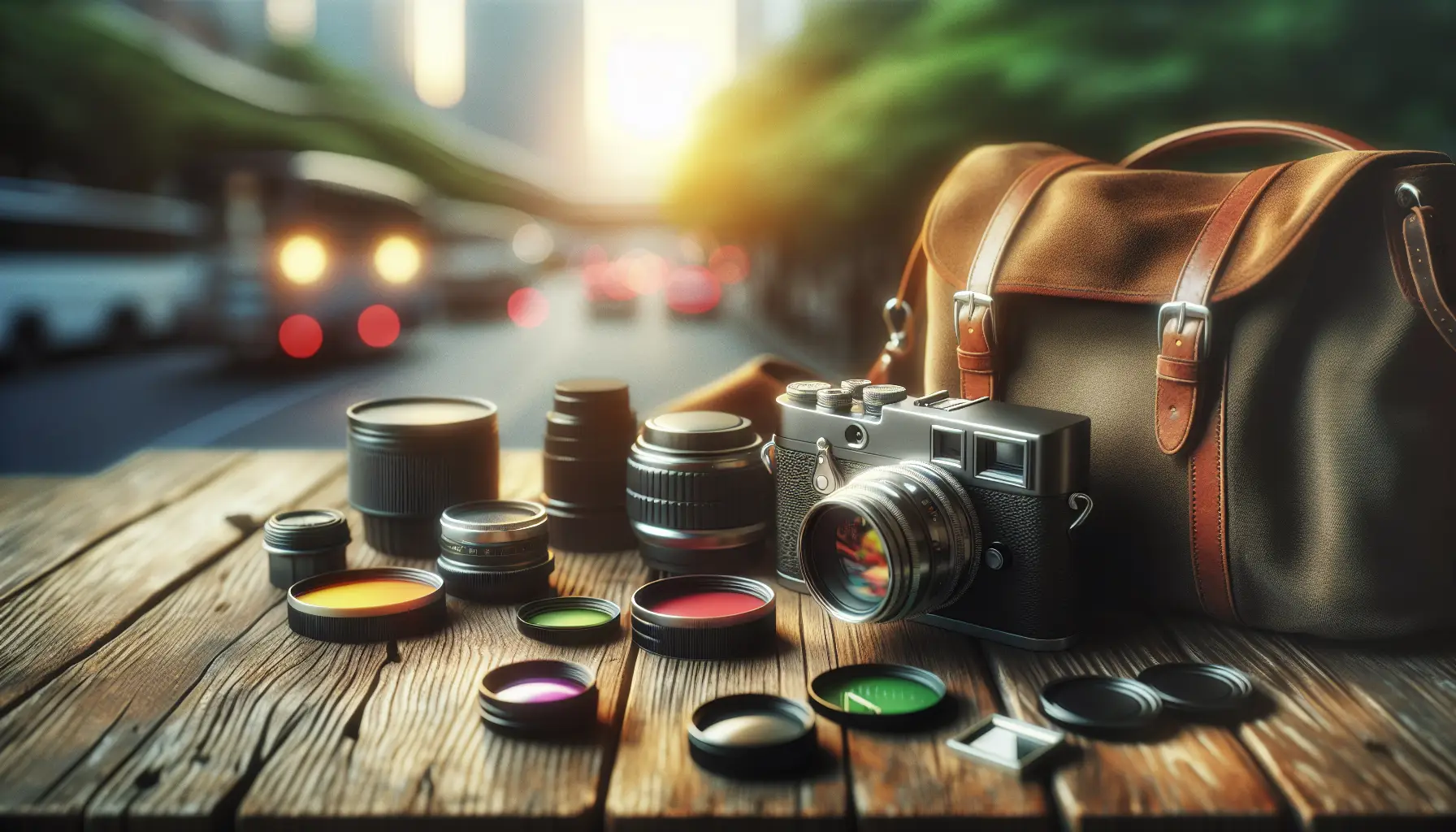Can we truly say that AI cameras can replace our beloved DSLRs for casual photography? This question lingers in the minds of many photography enthusiasts, casual shooters, and tech aficionados alike. With advancements in technology, we find ourselves in an era where artificial intelligence isn’t just a futuristic concept; it’s reshaping how we capture images. Let’s unpack this together.
Understanding AI Cameras
AI cameras are designed to enhance our photography experience through intuitive features like automatic scene recognition, subject tracking, and smart processing algorithms. They are equipped with technology that analyzes what we’re pointing at, instantly adapting settings for the best possible shot.
These cameras promise a user-friendly experience, reducing the need for technical know-how. But, can they genuinely match or even surpass the quality of the trusted DSLRs that many of us have come to love?

What Makes a Camera “Intelligent”?
When we think about AI, our minds often veer towards science fiction scenarios. However, AI in cameras functions quite differently. It involves complex algorithms that learn from millions of images, discerning patterns that make photos aesthetically pleasing.
For instance, AI can automatically adjust exposure, focus on subjects, and even enhance compositional elements. This functionality can be particularly appealing for those of us who simply want to point, shoot, and let the camera do the heavy lifting.
The Rise of Smartphones with AI Photo Capabilities
If we consider the evolution of casual photography, we can’t overlook the significant role smartphones have played. Many smartphones now embed AI technology directly into their camera systems, allowing for impressive photography without the bulk of traditional cameras.
The convenience of having a high-quality camera in our pocket is hard to ignore. However, as we compare these smartphones to DSLRs, the question arises: can AI-powered smartphones truly replace DSLRs?
Comparing Image Quality
When we discuss photography, image quality is often at the forefront. DSLRs have long been revered for their ability to capture high-resolution images with incredible detail and dynamic range. But how do they stack up against their AI counterparts?
| Feature | DSLRs | AI Cameras/Smartphones |
|---|---|---|
| Resolution | High (ranging from 20MP+) | Moderate (usually up to 108MP) |
| Dynamic Range | Excellent | Good, but can struggle in extremes |
| Low Light Performance | Superior | Improving, but not quite there yet |
| Lens Options | Wide variety available | Limited (often fixed or few attachments) |
While DSLRs offer superior low-light performance and versatility with interchangeable lenses, AI cameras and smartphones have made remarkable strides in improving their resolution and dynamic range.
The User Experience
One significant advantage of AI cameras is the sheer simplicity they offer. For those of us who may find ourselves overwhelmed with camera settings, AI technology provides an accessible route to capturing beautiful images.
Gone are the days when we had to memorize aperture settings or shutter speeds. Instead, we can focus more on composition and creativity, letting AI handle the technical aspects. This ease of use can enhance our photography experience, especially for those just starting.
Cost Considerations
When we think about investing in photography gear, cost is a critical factor. DSLRs often come with a steep price tag, especially if we’re considering high-end options. In contrast, many AI cameras and smartphones can deliver impressive results at a fraction of the cost.
| Camera Type | Average Price Range |
|---|---|
| Entry-Level DSLRs | $400 – $800 |
| Mid-Range DSLRs | $800 – $2,000 |
| AI Cameras | $300 – $1,200 |
| High-End Smartphones | $700 – $1,500 |
For many of us, especially casual photographers, the cost associated with DSLRs can be prohibitive. AI cameras and smartphones stand out as more accessible options without sacrificing too much quality.
Battery Life and Portability
Another essential aspect we consider is battery life and portability. DSLRs are typically bulkier and heavier, which can be a disadvantage for casual outings.
AI cameras and smartphones, on the other hand, are designed with portability in mind. Most AI cameras fit comfortably in our hands or bags, and smartphones require no additional gear. Efficient battery life means we can shoot longer without the fear of running out of power.

Editing Ease and Features
In the realm of casual photography, we also need to think about how easy it is to edit our images. With DSLRs, we may need additional software and skills to edit our photos effectively.
AI cameras and smartphones, however, often come with built-in editing tools powered by AI, allowing us to enhance our images at the touch of a button. From automatic color correction to one-click filters, AI cameras often streamline the editing process.
The Importance of Features for Casual Photographers
For casual photographers, specific features can make or break the experience. Let’s break down some of the crucial features we might care about.
| Feature | DSLRs | AI Cameras/Smartphones |
|---|---|---|
| Scene Modes | Yes | Yes, often more intuitive |
| Burst Mode | High FPS | High FPS, often with AI assistance |
| Video Capabilities | Good, but limited options | Excellent, especially on smartphones |
| Connectivity | Basic (Wi-Fi, Bluetooth) | Advanced (social media sharing, apps) |
As casual photographers, the ability to quickly share our photos or shoot high-quality videos can be a vital factor in deciding between a DSLR and an AI camera.
The Role of Creative Control
It’s crucial that we also consider creative control in photography. While AI cameras make it easier to take great shots, some of us revel in the ability to manipulate every aspect of our images.
DSLRs give us control over settings like ISO, shutter speed, and aperture, which allows for greater creative flexibility. So, it raises the question: can AI cameras nurture our artistic side without feeling too limited?
Personal Preferences and Experience Level
Our own experiences and personal preferences will significantly influence whether we lean more toward DSLRs or AI cameras. Some of us may find joy in learning the technical aspects of photography, while others might prioritize convenience and quick results.
If we’ve invested time in mastering a DSLR, the switch to an AI-focused camera might feel daunting or even unnecessary. However, for those who are more casual or just starting, the AI route may be more appealing.
Future of Photography: Hybrid Solutions
As technology advances, we witness a movement toward hybrid solutions that combine the best of both worlds. Companies are developing cameras that integrate AI in a way that retains manual controls typically found in DSLRs.
This trend may serve as a bridge, enabling those of us who love creative control to gain the benefits of AI technology. We might see future cameras that can switch seamlessly between modes, allowing us to choose between manual adjustments and AI enhancements.
The Verdict: AI Cameras vs. DSLRs for Us
In the ongoing battle between AI cameras and DSLRs, there’s no definitive answer. What works best for us will ultimately depend on our photography goals, experience level, and personal preferences.
While AI cameras have indeed made significant strides in terms of image quality, ease of use, and costs, they may not yet completely rival the versatility and control offered by DSLRs for those serious about photography. However, for the casual photographer simply wanting to capture life’s moments without a steep learning curve, AI cameras provide an enticing solution.
Conclusion: What’s Next for Our Photography Journey?
As we reflect on the evolving landscape of photography, it’s exciting to think about the possibilities ahead. AI cameras are not merely a gimmick; they are opening doors for many to engage with photography in ways we couldn’t have imagined.
Whether we lean toward traditional DSLRs or embrace the AI trend, one thing is clear: photography will always be about capturing moments that resonate with us. So, ask yourself: where do we fit into this ever-changing world of photography? The choice is ours to make.

